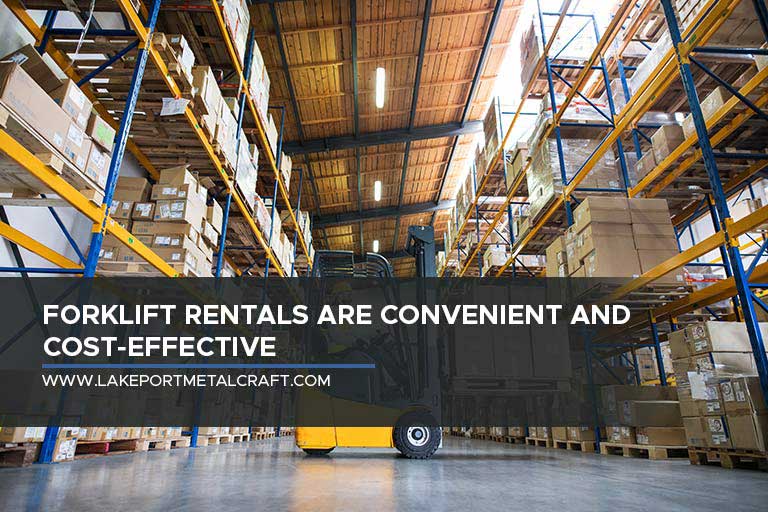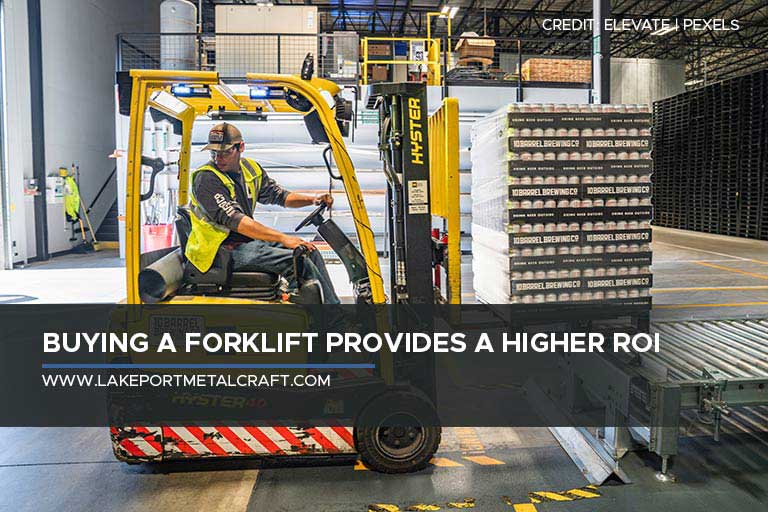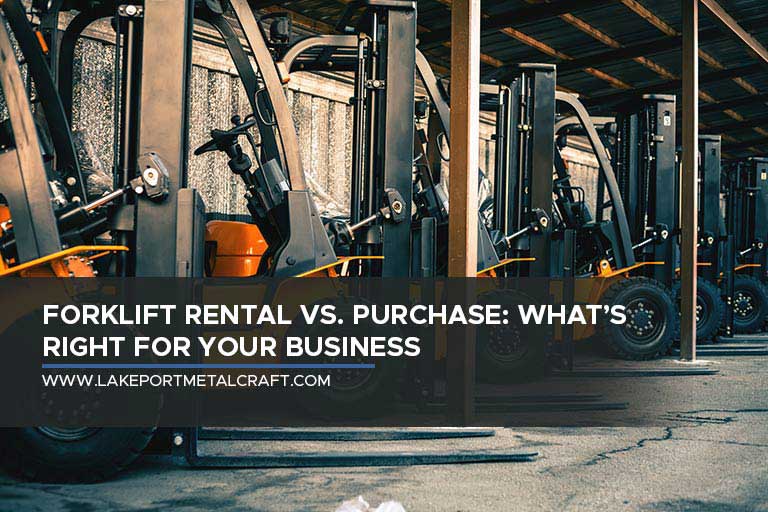When it comes to warehouse and fleet management, forklifts are the backbone of seamless product and material movement. However, choosing the right forklift solution for your operation can be challenging. After determining the most suitable forklift type for your requirements, you must make a choice between purchasing or renting the equipment.
There’s no one-size-fits-all answer, as each option has its advantages. To help you make an informed decision, we’ve prepared a comprehensive guide that explores the benefits of renting and buying a forklift.
Factors to Consider
It’s essential to gain a comprehensive understanding of the factors that will influence your decision:
Work utilization
Carefully evaluate the frequency and duration of use. Does your team only need a warehouse forklift short-term for a specific project, or do they need it for day-to-day operations spanning months to years? Understanding the anticipated level of demand will guide you to deciding between buying or renting a forklift.
Application demand
While immediate needs hold significant weight, it is equally vital to consider your future demands. Discuss with your team the potential changes you expect in terms of operations over the next few years. Will you be expanding your facilities or moving to a new workspace? Is there a possibility you’ll be handling products with vastly different dimension, shape, or weight compared to the products you’re handling now? Bringing these matters to light will enable you to scale your operations.
Benefits of Renting a Forklift

Renting a forklift offers a range of benefits for your business:
Cost-effective
Forklift rentals eliminate the upfront cost associated with purchasing one. Ongoing maintenance expenses also become the responsibility of the rental company. Furthermore, rental companies often offer special rates for long-term contracts, saving you significantly on operational costs.
Convenience
A forklift for rent offers convenience. With a simple call to the rental department of a reputable dealer, you can have a forklift delivered to your facility within a day or even a few hours in emergencies.
Rental companies usually provide professional delivery services, saving you the time, expense, and logistical challenges of transporting the equipment to your location. This convenience is particularly valuable if you lack a suitable delivery vehicle or a driver with the expertise to handle forklift transportation.
Access to modern technology
Opting for rental grants you access to cutting-edge models equipped with advanced technology, without the commitment of long-term ownership. This ensures your forklift operators can leverage state-of-the-art equipment to enhance efficiency, safety, and productivity.
Maintenance relief
You are exempt from maintenance responsibilities under rental arrangements. Routine servicing, repairs, and upkeep are managed by the rental provider. It will also be their responsibility to provide necessary enhancements, like a forklift rear post. This eliminates the need for in-house maintenance resources.
Potential drawbacks associated with renting include ongoing payment obligations, limitations imposed by rental agreements, and potential additional fees for excessive usage.
Benefits of Owning a Forklift

Purchasing a forklift introduces distinct benefits that may align effectively with your business objectives:
Flexibility
Ownership affords you the freedom to adapt swiftly to fluctuating work demands, unconstrained by predetermined rental hours. The flexibility of looking through a list of forklifts for sale proves valuable when dealing with extended operational hours or unpredictable schedules.
Customization
Purchasing allows you to tailor your choice between new and used models, ensuring alignment with your specific needs. Ownership also allows for customization based on application requirements, safety standards, and ergonomic considerations.
Total operational control
Owning a forklift grants you complete control over its utilization. The machine is at your disposal 24/7, facilitating uninterrupted access whenever necessary. This level of control enables rapid responses to operational needs, minimizing downtime and optimizing workplace efficiency.
Enhanced return on investment (ROI)
Investing in a forklift holds the potential for substantial returns over time. Should you decide to sell the forklift, a significant portion of your investment can be recouped. Additionally, ownership allows you to leverage the latest technological advancements, boosting operational efficiency and competitive advantage.
Potential downsides linked to ownership include higher initial costs, maintenance responsibilities, and additional expenses such as transportation, insurance, operation, logistics, and forklift licensing fees.
Navigating the Decision-Making Process
To facilitate a well-informed decision, here are additional steps to take before arriving at your final choice:
- What is the current scope of your projects and operations?
- How does your budget allocation align with forklift acquisition?
- Will the long-term rental costs surpass the expense of ownership?
- Might renting induce operational delays?
- Are you aiming to replace outdated or malfunctioning equipment?
- Do you possess the necessary resources and infrastructure for maintenance and storage?
- Does your business require immediate and continual forklift access?
By thoughtfully addressing these inquiries and taking into account your present and future operational requisites, you can confidently arrive at a decision that resonates with your goals and optimizes operational efficacy. For additional guidance, engage in discussions with team members and seek advice from forklift professionals.
Standup Forklift Safety Solution by Lakeport Metalcraft
Whether you have only one, or a fleet of reach trucks or standup forklifts, your operators may face the underride hazard. This occurs when there is no physical barrier between the overhead guard and the reach truck body. As a result, the reach truck can back into a horizontal rack beam, AND KEEP GOING, crushing your operator between the rack beam and the front of the reach truck cabin. The Backbone Safety Bar for Reach Trucks provides that physical barrier. Rather than a life altering injury or fatality, the reach truck simply bumps into the rack beam, and the operator goes about his or her day. For more information or to order The Backbone, email Norm at n.nopper@LakeportMetalcraft.com or call 416-587-5809.

